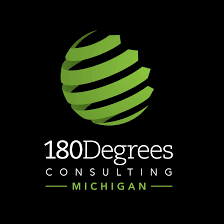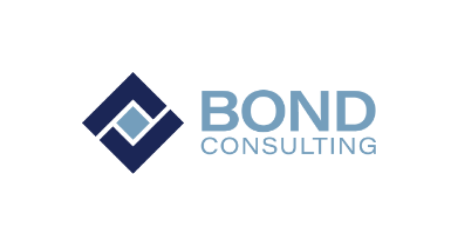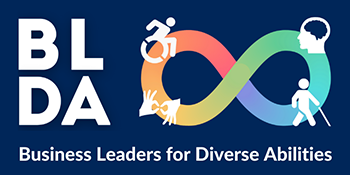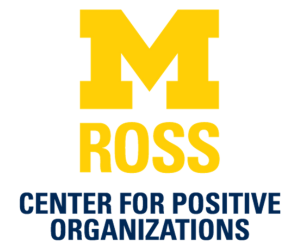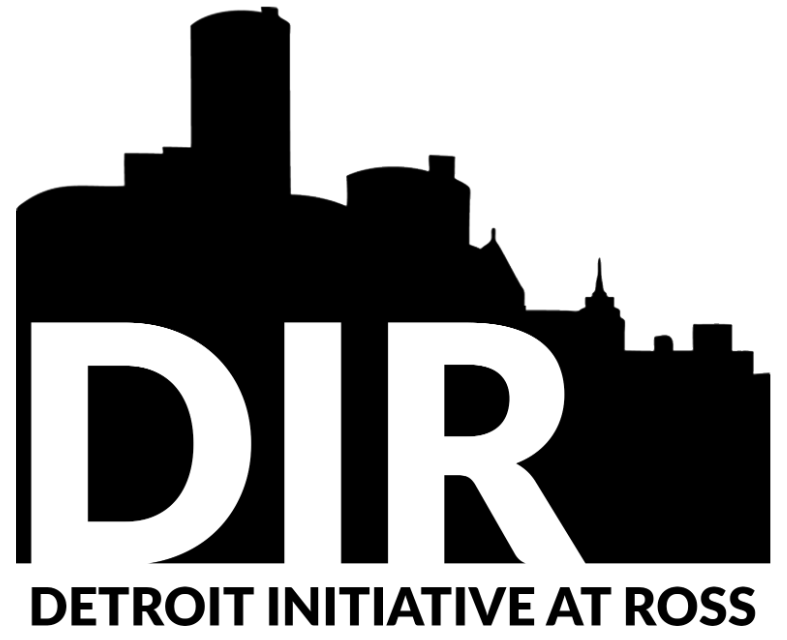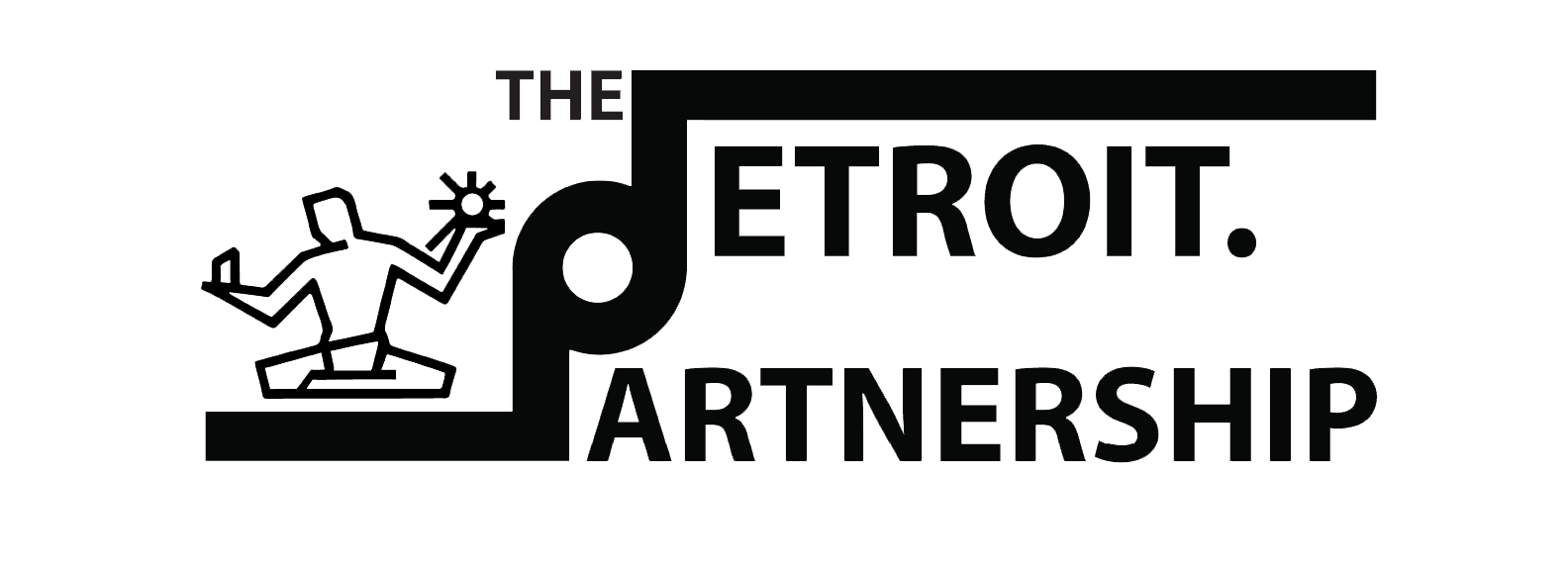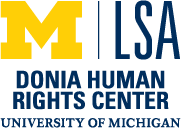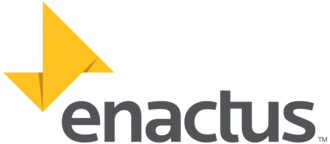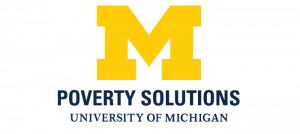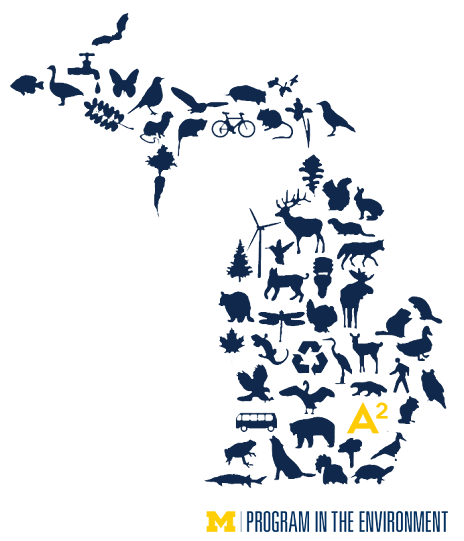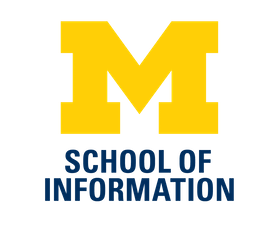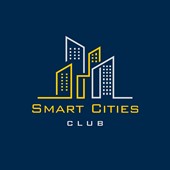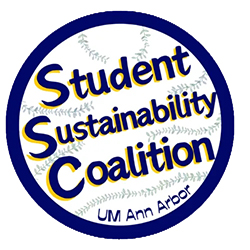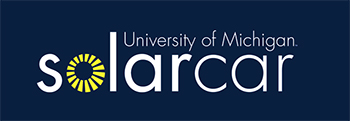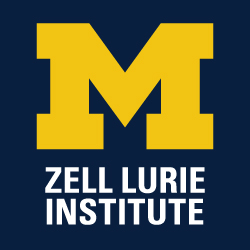8th Annual Business+Impact Showcase
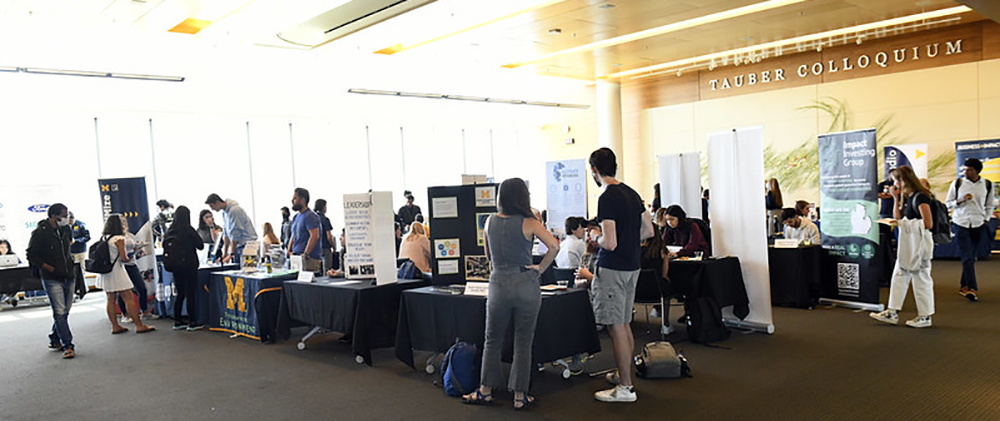
8th Annual B+I Showcase for All UM Students
Thurs, Sept. 4, 2025 @ 11 am – 1 pm
Ross School of Business
RSB Sixth Floor, Tauber Colloquium
Welcome new and returning students! We hope your summer was empowering and invigorating because we have a lot of opportunities coming up for you. As part of our mission to make students aware of impact opportunities across campus, we welcome students to our 6th annual Business+Impact Showcase at Ross. Students will have a chance to meet with over 30 organizations and map out their U-M impact journeys. The event will also feature food and other fun, engaging activities.
Complete Exhibitor list
Below is the complete exhibitor list for this year’s Showcase. Click on the plus sign to pull up more information:
180 Degrees Consulting is the world’s largest consultancy for nonprofits and social enterprises. At the 180DC Michigan branch, we are driven by a passion to help these organizations solve unique challenges so they can make the greatest social impact in their respective communities. Our members share a common goal of taking part in consulting work that is not only challenging, but meaningful and rewarding.
BOND, the original consulting club at the University of Michigan, has spent the last 20 years making a significant impact in the Ann Arbor community by partnering with over 140 local businesses, startups, and non-profits. Through our free consulting services, we have helped these organizations overcome their toughest challenges while simultaneously fostering a close-knit, family-like environment for our members. Our focus on professional and personal development equips our members with skills that are valuable in any industry. Our mission is to support the local economy, empower business leaders, and cultivate a strong sense of community both within and beyond the University.
Business Leaders for Diverse Abilities (BLDA) aims to foster community, raise awareness, and advocate for people with visible and invisible disabilities in the Ross School of Business community and in the broader professional business world through thoughtful programming, education, and events.
Michigan Ross seeks to build a better world through business. Business+Impact is the central hub for these efforts, providing ideas and solutions to address the global challenges of our generation. We aim to embed impact deeply into every core activity of Ross, including teaching, research, and outreach. As such, impact is not a silo, but an integral part of the DNA of our business school.
Ross already has a strong reputation for impact, with centers and institutes focused on worldwide challenges, and one fifth of incoming students expressing an interest in impact careers. But as we go forward, in addition to our existing programs and Impact Gateway, we will pursue the creation of a new +Impact Studio for coworking, a social innovation series to disseminate impact research, and deeper engagement with Detroit.
The Center for Positive Organizations (CPO) at the University of Michigan Ross School of Business is dedicated to the science of Positive Organizational Scholarship. Our mission is to ignite organizational excellence built on a foundation of human thriving. As a thought leader in research and practice, our programs encompass a breadth of learning and doing. We elevate students through coursework and co-curricular involvement, amplify the work of an active global research and teaching community, and enable our community of practice to put research to work to help organizations achieve exceptional outcomes beyond business as usual.
Launched by Ross School of Business MBA students in 2010, the Detroit Initiative at Ross connects University of Michigan students with Detroit’s vibrant and evolving business landscape. Through on- and off-campus events, an annual Impact Conference, student-run consulting projects, and a mentoring program, DIR promotes the city’s assets and encourages University of Michigan students to experience, engage with, and commit to the revitalization of the Motor City. We do this through a Mentorship Program, Impact Projects and our Impact Conference.
The Detroit Partnership connects University of Michigan students with Detroit-based community organizations through service-learning opportunities and on-campus programming. We aim to foster meaningful, sustainable relationships that support both community goals and student growth. Our mission is rooted in mutual respect, social justice, and long-term impact—not charity or saviorism. As a student-led organization, DP promotes inclusive engagement and actively works to dismantle harmful narratives historically associated with volunteerism. We are committed to equitable partnerships and meaningful student involvement across all areas of our work, including finance.
DP is a resource for both the University of Michigan and the broader Detroit community—open to all individuals regardless of race, gender identity, socioeconomic status, ability, or background.
The Detroit Neighborhood Entrepreneurs Project is a university-wide program based in Business+Impact that connects neighborhood-based Detroit businesses with University of Michigan faculty-supervised student teams from 7 U-M schools to help students learn critical consulting skills while providing minority-owned businesses with free legal, financial, marketing, operational, design, and technology services. Through semester-long courses, an internship program, and year-round programs, we give students a chance to apply and grow their skills while supporting business owners’ visions for their communities.
The Donia Human Rights Center is a forum for intellectual exchange on issues around human rights among scholars, practitioners, students, and the broader public. We aim to promote a deeper understanding of human rights issues in the contemporary world and to equip our constituents with the tools to tackle challenging human rights problems around the world. Toward that end, we invite leading practitioners and scholars to share their insights and expertise on human rights gained through their experiences and research. Thanks to the generous support of the International Institute at the University of Michigan and our benefactors, we are able to sponsor various public events each year featuring prominent speakers in the field of human rights and to support educational activities such as exchange programs and curricular development. We invite students, faculty, and the public to join us for a stimulating and inspiring conversation.
Enactus is a community of business leaders committed to using the power of entrepreneurial action to transform lives and shape a better, more sustainable world. Through our pro-bono consulting projects both local and global, we enact sustainable and socially impactful business solutions for our clients. We believe investing in students who take entrepreneurial action for others creates a better world for us all.
The Erb Institute is a partnership between the Ross School of Business and the School for Environment and Sustainability (SEAS) at the University of Michigan. The institute’s mission is to create a socially and environmentally sustainable world through the power of business. We do that through research, teaching and business engagement—all focused on preparing and supporting bold business leaders who can adeptly transform companies, industries and entire economies for systemic sustainability.
The institute was founded 28 years ago as a dual-degree program in which graduate students receive their MBA from Ross and their MS from SEAS. In 2020, the institute expanded its educational programming to undergraduate students with the creation of the Erb Undergraduate Fellows program. Today, the institute has grown to include scholarly and applied research on business sustainability, as well as direct business engagement to turn ideas into action through on-the-ground projects with companies, social enterprises and nonprofits committed to business sustainability.
The Ginsberg Center is a community and civic engagement center with a mission to cultivate and steward equitable partnerships between communities and the University of Michigan in order to advance social change for the public good. Based upon this mission, our vision is for inclusive democracy; thriving, diverse communities; and equity and social justice.
We help University of Michigan students and student organizations to engage with communities and create positive social change. Whether you’re interested in service, activism, or leadership, we provide the tools and support you need. Our offerings include:
- Personalized guidance for your initiatives.
- Skill-building for effective engagement.
- Connections with both campus and community leaders.
The Impact Investing Group is a student-led organization that supports social entrepreneurs in the Metro-Detroit area through a mix of finance and consulting work. Each fall, analysts conduct due diligence on loan applicants and award 2-3 microloans ($1-5k each) from IIG’s $50,000 fund. Each winter, analysts work through a full consulting project cycle assisting loan recipients and other impact-focused businesses. Additionally, new analysts complete an education program covering core business skills, structured to emphasize hands-on learning, client work with local entrepreneurs, and a supportive community.
The +Impact Studio at the Ross School of Business is a campus hub for impact creators and innovators. Launched within the Business+Impact Initiative in 2019, our mission is to bring impactful ideas to life using business knowledge, design tools, and research expertise. The +Impact Studio encompasses a collaboration space, an interdisciplinary graduate course, a design lab for impact-focused ventures and projects, and workshops and events. Our model activates the vast expertise and research insights from across campus to support the development and launch of powerful, impactful concepts.
The Office of Multi-Ethnic Student Affairs (MESA) provides support and programming through celebrations, educational offerings, and building social capital through the lens of race and ethnicity. Using the lens of race and ethnicity, MESA engages the campus community and transforms the student experience to build inclusive spaces and equitable opportunities for all.
Net Impact @ Ross is a professional club and community for Ross students committed to driving social change. We are part of a broader international network of business leaders committed to responsible business models, policies and practices. Net Impact members seek to integrate this commitment into the mission, values, strategy and operations of organizations in which they are involved.
We’re excited to continue Net Impact’s mission this upcoming school year, and support students as they pursue impact-oriented careers!
If you could change something in the world, what would you change? optiMize an organization at the University of Michigan that offers programs, courses, mentorship, and funding for students of all ages and majors to work on self-directed projects.
We create a supportive community for you to build skills, pursue passions, and take action —whether that means starting a company, creating a student org, collaborating with an existing organization, launching a creative project, developing an activist effort, or whatever method works for you to create impact!
Our flagship program is the optiMize Social Innovation Challenge.
It’s an incubator for students to develop self-directed projects and ideas for social impact. It offers personalized mentorship, supportive community, action-based workshops, and a chance to pitch for up to $10,000.
You can join with an existing project or new idea. Everyone is welcome — from first-year undergraduates to PhD candidates, from all 3 UM campuses, from all degree programs, and from partner community colleges across the state of Michigan.
Our Transfer Student Programs are aMplify and moMentum.
Through moMentum, you can participate in a fellowship to connect to University of Michigan’s resources and engage with other moMentum fellows and community college students.
After transferring to UM, you can join us at aMplify and have continual support in the transfer student experience with programing that is bought to you by transfer students, for transfer students.
The Planet Blue Ambassador Program (PBA) serves as the entry point to sustainability at the university of michigan, providing ambassadors with a training on U-M sustainability topics. PBA is a part of U-M’s campus wide Planet Blue initiative.
Poverty Solutions is a university-wide presidential initiative at the University of Michigan that partners with communities and policymakers to find new ways to prevent and alleviate poverty through action-based research. In confronting the challenges of poverty, we know scholars don’t have all the answers. Yet we have an important role to play. We can bring data, evidence, and analysis to identify critical issues and evidence-based solutions. Working in partnership, we can inform concrete action that empowers families to live healthy and productive lives.
The Program in the Environment (PitE), a jointly managed program between the College of Literature, Science and the Arts and the School for Environment and Sustainability, offers both a broad liberal arts education in environmental topics and the opportunity for students to pursue various lines of individual interest in considerable depth. Broadly speaking, PitE’s curriculum focuses on the complex interactions of human beings and their environment. To understand these interactions and learn how to create more rational and equitable forms of human habitation on this planet, PitE students develop a multidisciplinary perspective integrating the methods and approaches of the natural sciences, social sciences, and humanities.
The Ross Career Development Office (CDO), made up of professional career coaches and employer relations staff, has a proven record of helping MBA and BBA students succeed across industries, functions, and global markets. CDO’s mission is to make Michigan Ross the most powerful career accelerator and a distinctive source of leadership talent, providing students with the tools, guidance, and connections they need to achieve their career goals.
Stefanie Barlow is the staff coach for MBA students interested in pursuing careers in all areas of impact—sustainability, CSR, climate, social impact, and related fields—as well as energy. Through the Functional Accountability Career Teams (FACT Groups), Stefanie and the peer coaches—Jaya Uppal (Energy), Mollee Nagle, and Amidat Sonekan (Impact)—provide structured support, practical guidance, and actionable strategies for students navigating recruiting in these sectors. Together, they help students explore career pathways, develop functional skills, and secure roles where they can make meaningful, tangible contributions.
Michael Goldberg is the staff coach for BBA students interested in pursuing careers in all areas of Impact. Michael, along with the Impact peer coaches Carlie Peterman and Jordan Ives, are here to support students as they pursue impact careers across a variety of functions and industries including corporate social responsibility, impact investing, environmental sustainability, government & policy, healthcare, education, non-profits, and more.
Ross’ mission is to build a better world through business through our people, ideas, and impact. The Ross Office of Community, Culture, and Belonging believes that can only be fully realized by fostering an inclusive environment where every member of our community feels a sense of belonging, has access to opportunities, and develops intercultural and interpersonal competencies that will last a lifetime.
The three pillars that guide our work:
1) Belonging-We are committed to creating an environment where everyone feels valued, respected, and connected;
2) Broad Access and Opportunities-We are committed to fostering an environment where everyone is supported and has access to opportunities; and
3) Intercultural and Interpersonal Competencies-We are committed to providing opportunities and resources to enable effective engagement and collaboration across differences.
Semester in Detroit transforms U-M students through reciprocal relationships with the people, organizations, and neighborhoods of Detroit. By living, learning, and working in the city, our students engage with community leaders in transformative work – strengthening themselves as well as the wider region.
Semester in Detroit is funded by the College of LSA and administered through the Residential College.
Launched in September 2009 by a group of MBA students, the SVF invests in and supports innovative companies that place social impact at the heart of their business model. SVF fosters the growth of enterprises responding to societal needs that traditional markets have insufficiently addressed. As the first student-run social venture fund in the country, SVF provides an unparalleled action-based learning experience, which places equal importance on maximizing financial returns and socially/environmentally-driven venture investing and entrepreneurship. The found is housed within the Zell Lurie Institute for Entrepreneurial Studies at the Ross School of Business
UM SEAS is a vibrant community dedicated to driving environmental innovation and stewardship through education and research. As a leading institution for the study of natural resources and the environment, SEAS offers interdisciplinary programs that integrate the social, scientific, and design disciplines needed to address complex sustainability challenges. The professional master’s degree program prepares students for leadership positions in environmental sustainability. Students join the SEAS program from over 100 different undergraduate majors and, after completing the common core, may specialize in one or more of the following fields of study:
The School of Information’s Engaged Learning Office (ELO) offers many co-curricular programs that pair students with a wide range of external organizations and provide innovative opportunities to gain practical experience. Programs such as the Civic User Testing (CUT)group, client-based project programming for student organizations, A2DataDive, study abroad, design jams, and Future of Work theme year events allow students to engage with real-world problems, gain experience, and offer organizations valuable deliverables.
The Smart Cities Club at the University of Michigan was launched in 2015 to provide students across all disciplines and backgrounds with an outlet to learn about the intersection of business, government, policy, technology and impact. The club provides students with opportunities to pursue a civic mindset regardless of specific career paths or concentrations and build community with like-minded students and professionals.
The Zell Lurie Social Venture Fund (SVF) is the nation’s first student-run impact venture fund. SVF invests in innovative for-profit companies that place social impact at the heart of their business model. Fund associates employ rigorous social and financial valuation techniques to create and manage a portfolio that delivers financial, social, and environmental returns commensurate with risk. Overall, SVF fosters the growth of enterprises responding to societal needs that traditional markets have insufficiently addressed. The fund is housed within the Zell Lurie Institute for Entrepreneurial Studies at the Ross School of Business.
The Student Sustainability Coalition is a group of university-employed students dedicated to building a sustainable campus culture at the University of Michigan. Our mission is to unite students, student organizations, and administration to advance shared goals of social and environmental sustainability that benefit all members of the U-M community. Whether it’s building connections, fostering new partnerships, or amplifying initiatives already underway, SSC exists to serve as a resource for all.
The University of Michigan Detroit Center (UMDC) provides a visible symbol of our 200-year relationship with the City of Detroit. Conveniently located in the heart of the city’s cultural center on Woodward Avenue, the Center is a gateway for University and urban communities to mutually enrich each other through service, education, research, and cultural exchange.
The University of Michigan Solar Car Team is an entirely student-run organization that designs and builds solar electric vehicles. The team races both nationally and internationally. Since its establishment in 1989, the team has built 18 vehicles, won the American Solar Challenge ten times, placed in the top three in the World Solar Challenge seven times, and won one international competition. The team is recognized as the most successful team in North America and one of the most successful teams in the world. Racing across an entire continent requires massive financial backing, the team spends around $2 million every cycle. Join the team and get experience meeting with real-world professionals.
The William Davidson Institute at the University of Michigan is a solutions-driven non-profit that operates at the intersection of education, entrepreneurship, and impact across emerging markets. We are dedicated to unlocking the power of business to tackle critical global challenges and drive inclusive economic growth. We mobilize entrepreneurs, investors, governments, and academia to drive pioneering solutions across sectors, with a special focus on health, climate-health, and energy.
The Zell Lurie Institute for Entrepreneurship’s mission is to build a better world by inspiring students and alumni to embrace an entrepreneurial mindset and providing them with the resources they need. ZLI advances the knowledge and practice of entrepreneurship and innovation through academics, competitions, symposiums, and global community outreach. The Zell Lurie Institute is the foremost resource for students as they pursue entrepreneurial endeavors and private equity careers. Our programs are largely industry-agnostic and are prepared to help you with all of the entrepreneurial business basics as you pursue your next social impact endeavor.


